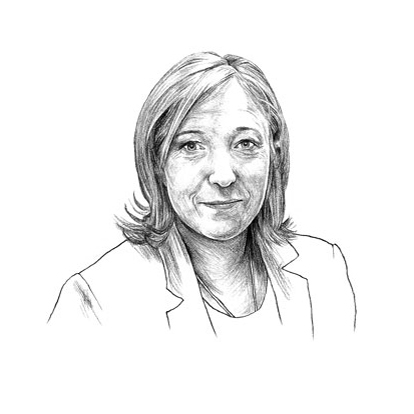
When Jean-Marie Le Pen was still the leader of France's National Front party, we spoke often, either at his villa in Paris or at my dacha in Moscow. Toward the end of his long career, he would tell me that the French nationalists had probably gone too far, particularly with their anti-gay, antiabortion, anti-immigrant and sometimes anti-Semitic positions. This ruined their relations with the press and alienated a large part of European society. Le Pen realized they had to move to something softer, and this has been the role of his daughter.
At 42, Marine Le Pen, who now leads the National Front, is in her full political bloom, and everything is coming into alignment for her. She has embraced all democratic values while being unafraid to ditch some of the old nationalist principles. Instead of saying that Islam is terrorism, she simply insists that France is a secular nation that will not stand for hundreds of thousands of Muslims practicing their religious traditions. With this argument, Marine has cleverly defended the French people's right to a secular nation.
At the same time, centrist and liberal forces in Europe are having to get tougher on immigration, because that is what the people demand. This has made Marine far more relevant to the issues of the day, because the people remember her father's toughness. She now has a shot at the presidency and a very good chance of expanding the party's role in the National Assembly. The name Le Pen now has a chance to represent the French majority, and that should make her father very proud.
Zhirinovsky is the leader of Russia's right-wing Liberal Democratic Party